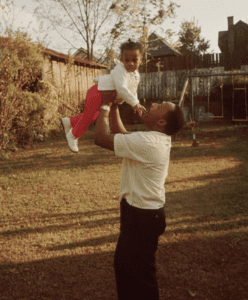Pandemic Persistence

Throughout 2020 and 2021, we have navigated countless changes and losses related to the spread of COVID-19. We have postponed celebrations, mourned for loved ones, felt the loss of time and resources, and endured countless other difficulties and trials. More recently, we have begun to see how we as individuals, families, and communities navigate these changes and find our “new normal” as we slowly return to work, school, and congregating together, all while maintaining “social distance.” We have taken on more than we could imagine in this last year and the physical, mental, and emotional effects of COVID-19 are lasting beyond what we could expect.
Beyond these changes, the uncertainty and unpredictability that comes along with a global pandemic can be a main contributor to what makes this year feel traumatic. Trauma can be felt in a wide variety of situations and can be defined as an event that overwhelms the central nervous system, shifting the way we process memories and recall them. Trauma can be felt in an even more severe and debilitating way when we lack predictability and feel a lack of control, regardless of the event. COVID-19 is considered a “collective” trauma: an event or series of events that affect a large number of people within a shared span of time. In addition to this collective trauma, we may experience our traumas as well. Though there are more types of trauma than those listed, we can manage these in a variety of ways and support one another in doing so.
- Acknowledge your own experience: acknowledge what has happened and your feelings as all being valid
- Acknowledge another’s experience: your definitions of trauma may be different and what is traumatic for one person may not be traumatic for another
- Identify your reactions to stress and trauma: this can include changes in sleep and eating, isolation, symptoms of depression and anxiety, and many other significant lifestyle changes. Identifying these is important in addressing them and communicating to your support network what you may need help with
- Find your supports: having a network of people to support you is important in taking care of yourself and maintaining healthy relationships around you. COVID-19 quarantining, social distancing and remote working/learning have made this more difficult, so utilizing technology and socially distanced ways of engaging is a helpful way in staying connected to friends, family, counselors and therapists, doctors, mentors, and other supports we may have. Also, reach out to these people
- Find a routine: we lost our established routine last year and have since had to adjust to multiple new ones depending on our daily responsibilities. Having a set routine gives us a sense of control, as well as the predictability that trauma can so quickly take from us
- Self-Care: We hear this so often, but finding ways to take care of ourselves that benefit our body, mind, and spirit are crucial in maintaining and rebuilding our resiliency and recovering from an ongoing trauma such as COVID-19
Each of these steps is vital in the lasting effects COVID-19 has had on us as a community this year. Talk with your therapist or counselor on how to engage in each of these steps and more or contact Summit Counseling to get connected to a counselor or therapist today.
“Trauma is not the story of something that happened back then. It’s the current imprint of that pain, horror, and fear living inside people.” – Bessel van der Kolk, Author of “The Body Keeps the Score”



